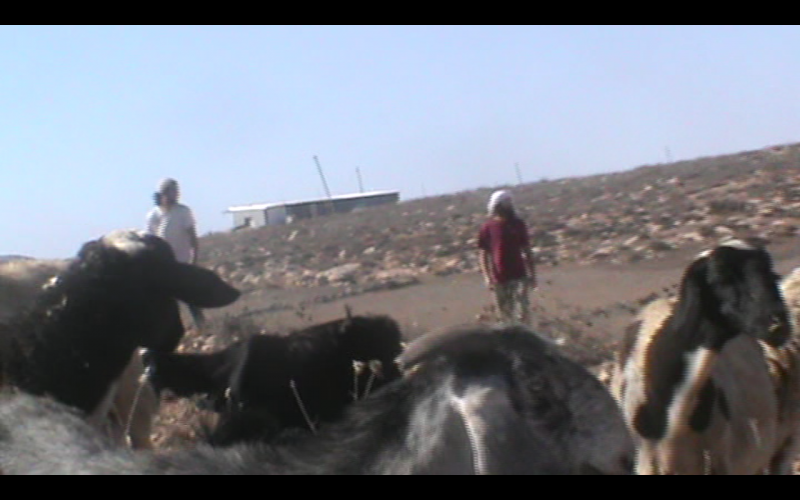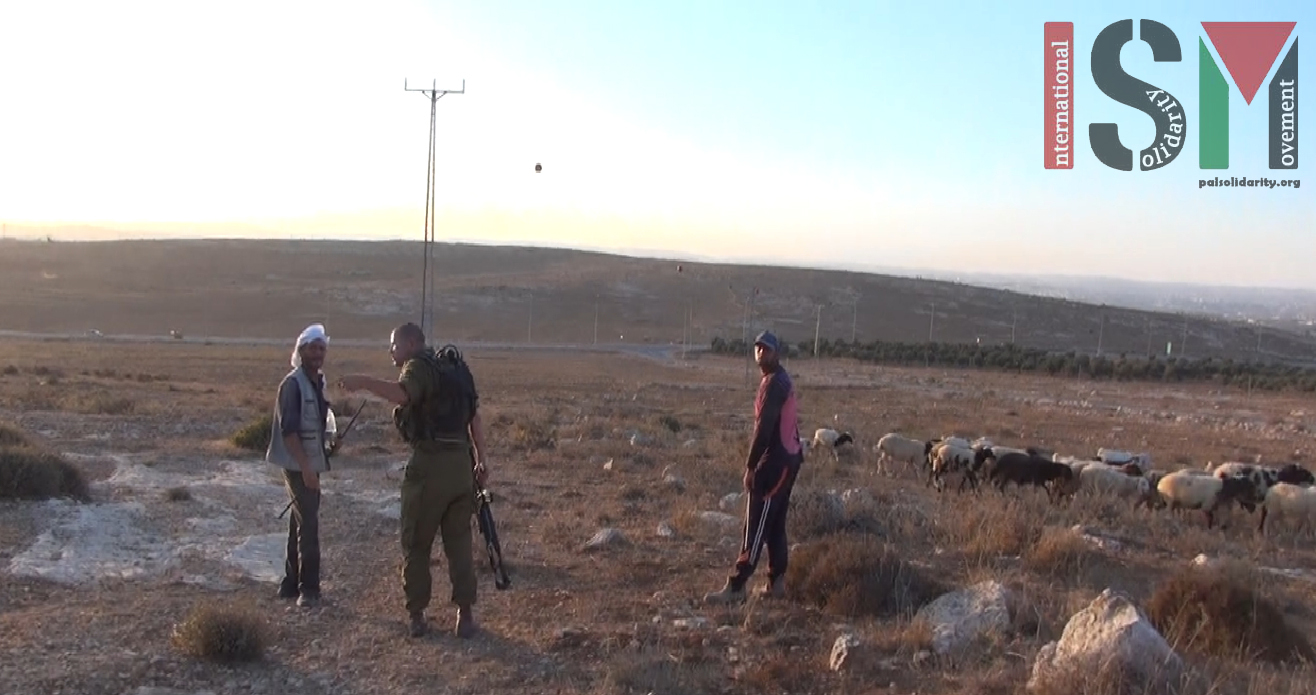Tag: South Hebron Hills
-
Palestinians dismantle illegal settler outpost
12th October 2014 | International Solidarity Movement, Khalil team | Susiya, Occupied Palestine Today Palestinians and international activists participated in a Palestinian village community action which involved reaching an area of their land which has been declared a closed military zone. The action also consisted of dismantling a new illegal settlement outpost built by settlers. Over…
-
Israeli settlers attacked internationals and a Palestinian shepherd
15th September | Operation Dove | At Tuwani On September 14th, two Israeli settlers attacked a Palestinian shepherd and two international near the Israeli outpost of Mitzpe Yair, in the South Hebron Hills area. During the aggression, the settlers stole video cameras from the internationals and broke one of their phones. Israeli police detained the…
-
Shepherds detained for crossing a road
26th August 2014 | International Solidarity Movement | Qawawis, Occupied Palestine While shepherding approximately 1 km south of Qawawis, a village south of al-Khalil (Hebron), on Sunday 24th near the illegal settlement and army base of Suseya, three shepherds were stopped by the Israeli army and detained for 20 minutes. The three shepherds were just on their way back…



